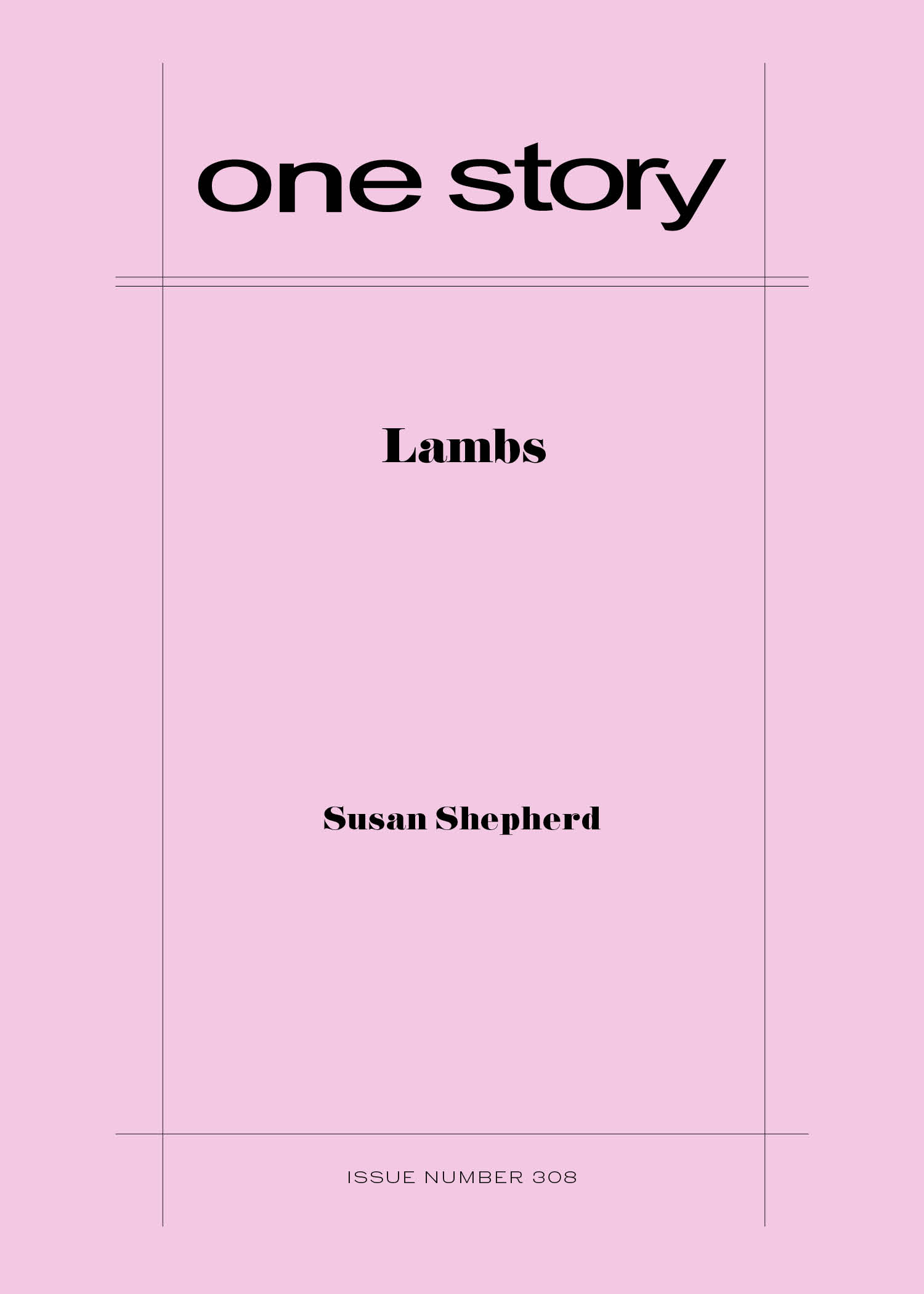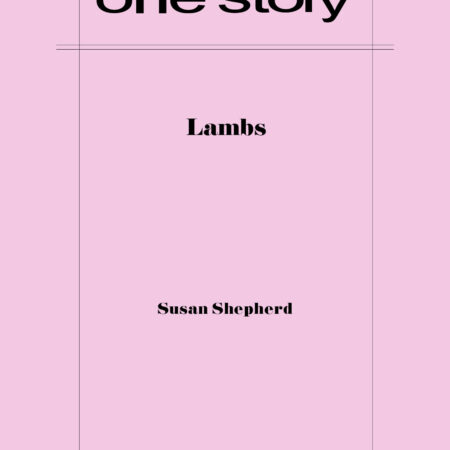
Lambs
$2.50
202 in stock
Excerpt
It was impossible for me not to love my little sister. At the same time, she’d made it abundantly clear she didn’t love me. It had been five years since I’d seen Sienna. Our mother, who lived alone, had been taken to the hospital recently and I knew there was only more of that to come.
I needed my sister, even if only for moral support. So I booked a week-long trip to New Zealand hoping to clear the air about things that had gone unspoken for far too long. At thirty-two, I still had no family of my own, and she was all I had. For her part, the sheep had replaced me. An odd choice, I thought—sheep aren’t very interesting. Not like goats, brimming with chutzpah and devil eyes and whimsy. But she’d probably had enough of personalities, growing up the way we did. I gave her that.
After landing at the Queenstown airport, with its stunning views of green snowcapped hills straddling Lake Wakatipu, I wrestled suitcases off the luggage carousel. I’d brought her presents, even as I’d tried to tell our mother and father I wasn’t their postal service, and it was all stuff she likely didn’t want. At the airport pickup, Sienna stood next to her green Toyota truck watching me, unable or unwilling to disguise her irritation that I was bringing so much.
Susan Shepherd
Susan Shepherd’s audio work as a producer and reporter has aired on Marketplace and on multiple daily NPR shows. Her writing has been published in The Boston Globe, Ploughshares, Chicago Quarterly Review, Story, and The Kenyon Review. Her short fiction podcast 11 Central Ave aired on public radio stations around the country. The show won a Gold Medal for Best Comedy from the New York Festivals and a National Gracie Allen Award for Best Producer, Comedy. “Lambs” is part of a linked collection of short stories called “Animalia,” several of which have been listed as distinguished stories in The Best American Short Stories. She lives outside of Boston with an assortment of chickens, her dog, and her husband. You can find out more at susanshepherd.com.
Karen Friedman on “Lambs”
I was thirteen on the Christmas my father and uncle reconciled—after years of mutual and somewhat antagonistic silence. At the time, it felt huge and tragic to have a whole family I didn’t know, cousins I’d never met, suddenly mine. As a grown-up, I’ve seen this sort of thing happen in many families, and I know there are legitimate reasons why one sibling might cut off contact from another. But just as rifts are common, so too is the desire to repair, to idealize what it means to be family—especially during this time of year.
While not explicitly a holiday story, our newest issue, “Lambs” by Susan Shepherd, feels like a perfect pairing with the season. It begins with a woman, Charlotte, arriving in New Zealand where her younger sister has made a solitary life on a sheep farm. Although close as children, their estrangement began years ago and has grown until it is no longer tenable for Charlotte. She wants her sister back, or at the very least she wants to understand what happened.
Blending the present with an ever-waiting past, Shepherd probes the way memory is shaped by what we are willing to see and the betrayals we allow ourselves to accept. One Story is delighted to share “Lambs” with you. We hope you enjoy this story of complicated siblings and imperfect love as much as we did.
Q&A by Karen Friedman
- KF: Where did the original idea for this story come from?
- SS: I read “Exit Strategies for Alaskan Wine Bars” by Leigh Newman and loved the structure of present/past with each part having its own narrative drive. I wanted to try to write a story like that. For my collection, I had written an earlier story called “Porcupines,” about Charlotte and her mother Eleanora. In it, I wrote that Eleanora lost custody of Charlotte and her sister, Sienna, when they were little, because she was a hippie and lived in a commune. In “Porcupines” the sisters are estranged. I wanted to tell the story of their rift, and how Charlotte was pushing for them to get together again. I myself lost two sisters, much too early, and the idea that sisters can be alienated from each other…well that’s heartbreaking to me.
- KF: Setting is significant here. Why New Zealand, and how familiar were you with it—and with raising sheep—before you started writing?
- SS: I have no idea why a sheep farm in New Zealand. That’s where I knew it had to be. It’s so isolated, and far away, which Sienna chose as a kind of punishment but also totally in nature and surrounded by animals. And then I read this wild memoir called The Sheep Stell, about a woman after the Second World War who did just that. Lived on an island off of New Zealand by herself with a large herd, fire as her only means of communication with the mainland. When I thought about Sienna, I could see her living there. It seemed right. Also, there are kea there. They are just amazing, troublemaking birds with lots of personality.
- KF: Late in the story, Charlotte apologizes, and Sienna basically rejects her apology. From the first read, this scene resonated with me because not only is it precisely the sort of miscommunication that happens all the time in relationships, but it’s also a tricky bit of narrative misdirection. In less capable hands it might even have been the story’s climax. Did you always know how Charlotte’s apology would fit into this story?
- SS: I wanted this to be a story about people who love each other but can’t be close because of things they can’t say. Things they aren’t able to work out. Charlotte tries to get Sienna back, but she can’t go all the way. She’s not willing to see the truth. Her apology allows her to stay removed. Because in some way her apology isn’t the point. She cannot do what Sienna needs her to do, that’s what she should be apologizing for. What she actually apologizes for wasn’t her fault.
- KF: Did anything surprise you while writing?
- SS: I think what surprised me was the deep emotion I felt about how sad it is when people can’t communicate in a way that will bring them closer. I did not want this story to have a happy ending. I didn’t want them to work it out. I was talking to a writing friend and she was pushing back a little on that ending, wanting them to say what they needed to say, and I asked her about her relationship with her own sister, which I knew was somewhat fraught. I said, “Have you ever discussed this with her?” and she said, “No, I don’t think I could do that.” We both laughed. So, of course, they will stay stuck forever, and that’s the tragedy isn’t it?
- KF: “Lambs” is part of your collection of linked stories. Can you talk about how it fits into the larger collection?
- SS: The book opens with two little girls who don’t know each other. They’re on a plane that goes down on the ocean. Everyone safely makes it into a lifeboat, but something miraculous happens to the animals around them, which they never forget. The book is about those two girls. Charlotte is one of them. But in a larger sense the book is about individuality that’s trumpeted as a virtue, which has caused untold suffering. We humans are forever searching for connection, with the natural world and with each other, but too often we don’t know how much we need that. That’s a grave mistake both individually and collectively.
- KF: What are you working on now?
- SS: I’ve just finished the last story in the collection and I’m getting ready to send it out into the world. The collection is called “Animalia,” and the stories are linked around two protagonists with lots about their connection with animals and nature. The whole thing ends in a finale, a kind of Green World comedy, where trees talk, monkeys maraud, and nature answers back. Half of the stories have been published in lit mags. And I’ve started a novel called Trash. A downwardly mobile community in Florida that connects against all odds over a proposed trash dump the government wants to put there. It’s a sad and humorous look at how crazy this country is right now, but with a path forward. Community and connection. Big themes for me.
- KF: What’s the best piece of writing advice that you’ve ever received?
- SS: I think something to do with: if you’re scared to go there, that’s where you have to go. The more difficult emotionally, the more important you tackle it. That will be the heart of the story. It may have been Dani Shapiro who said that, but I don’t remember. I don’t think I’ve mastered that one. I find it very hard. That’s the craft advice. In terms of the practice of writing it was something I heard Neil Gaiman say: he goes to his writing desk and sits there for a predetermined length of time. He doesn’t have to write. But he can’t do anything else. Eventually you’ll get so bored you’ll write something. That has worked for me.
